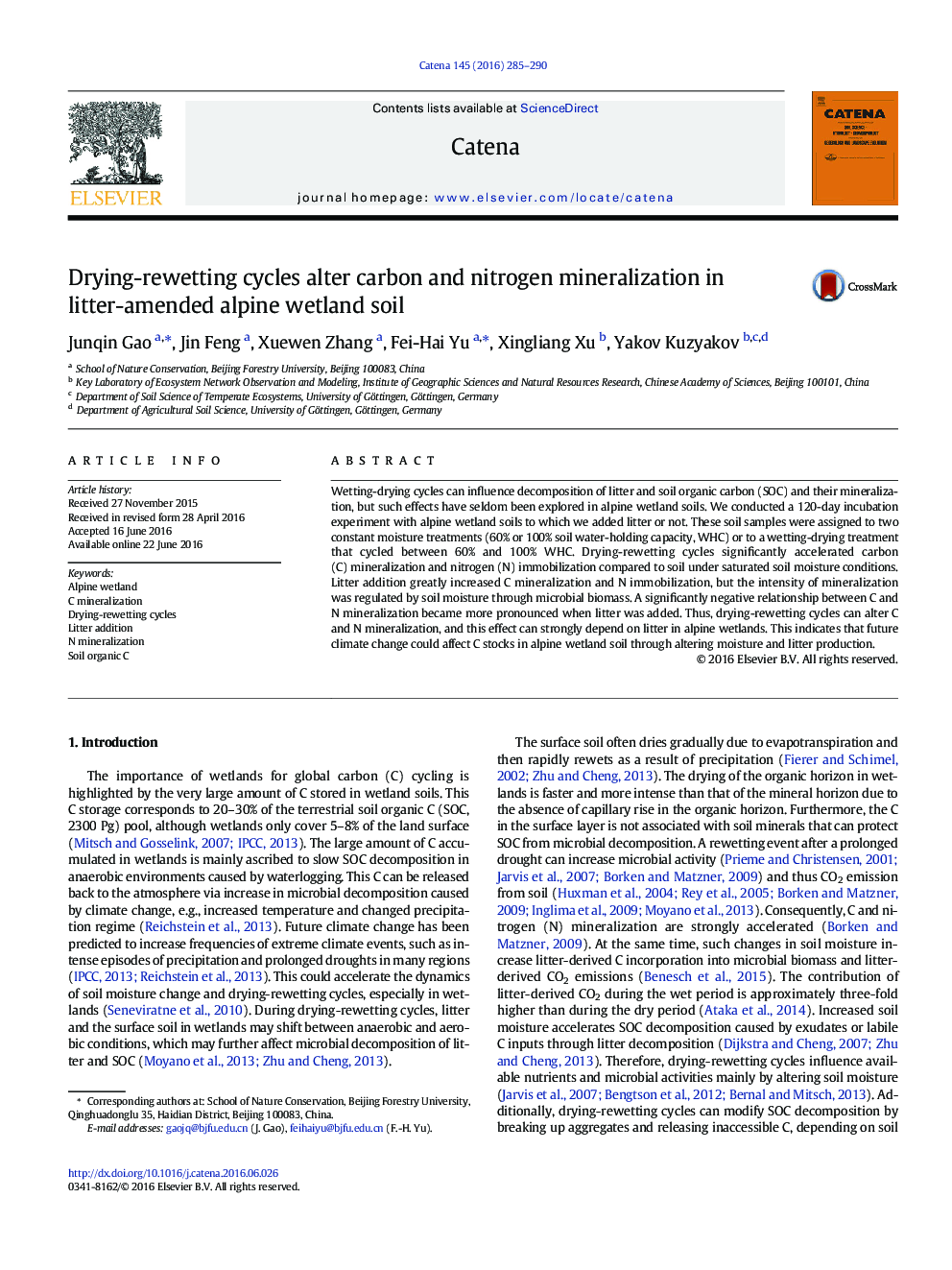| Article ID | Journal | Published Year | Pages | File Type |
|---|---|---|---|---|
| 4570903 | CATENA | 2016 | 6 Pages |
•Drying-rewetting cycles significantly regulated C mineralization and N immobilization.•C mineralization and N immobilization were greatly increased with litter addition.•A significant positive relationship between C and N mineralization became more pronounced when litter was added.•Drying-rewetting cycles can alter C and N mineralization, and such effect strongly depend on litter in alpine wetlands.
Wetting-drying cycles can influence decomposition of litter and soil organic carbon (SOC) and their mineralization, but such effects have seldom been explored in alpine wetland soils. We conducted a 120-day incubation experiment with alpine wetland soils to which we added litter or not. These soil samples were assigned to two constant moisture treatments (60% or 100% soil water-holding capacity, WHC) or to a wetting-drying treatment that cycled between 60% and 100% WHC. Drying-rewetting cycles significantly accelerated carbon (C) mineralization and nitrogen (N) immobilization compared to soil under saturated soil moisture conditions. Litter addition greatly increased C mineralization and N immobilization, but the intensity of mineralization was regulated by soil moisture through microbial biomass. A significantly negative relationship between C and N mineralization became more pronounced when litter was added. Thus, drying-rewetting cycles can alter C and N mineralization, and this effect can strongly depend on litter in alpine wetlands. This indicates that future climate change could affect C stocks in alpine wetland soil through altering moisture and litter production.
